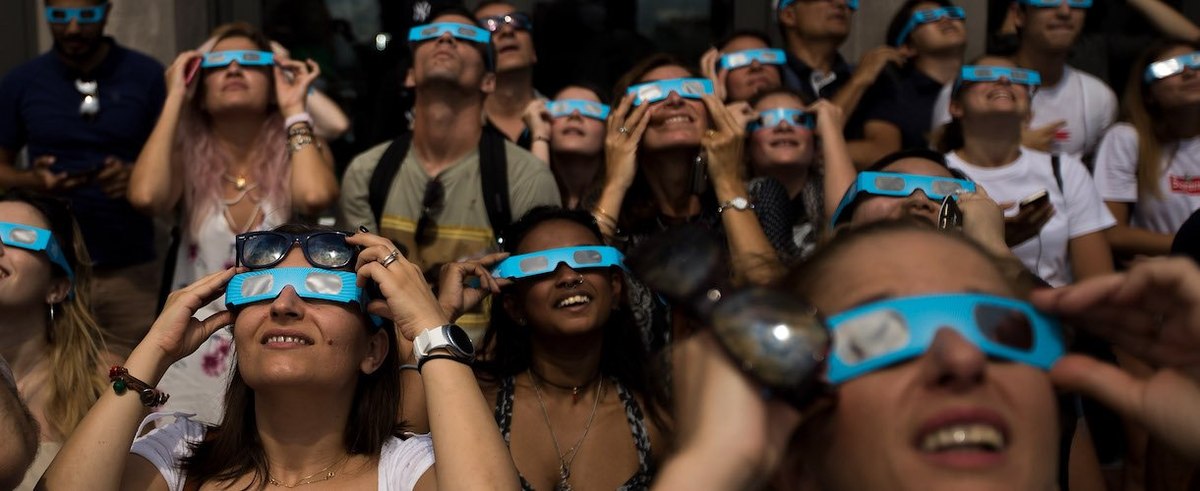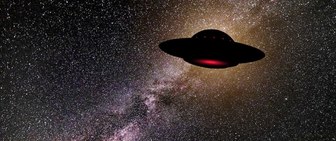About half of Americans say they will view the upcoming solar eclipse on Monday, April 8, with people in the direct path of the eclipse being especially likely to have concrete plans to participate in this rare event.
The total solar eclipse will take place during the day, and according to a survey of roughly 37,000 adults conducted a week before the eclipse, 53% of Americans intend to catch a glimpse of it. Half of people who hope to see the eclipse say they already have viewing plans in place, while the other half haven't made any specific plans. One-third of Americans say they won't see the eclipse, including 18% who wish they could see it, but won't, and 14% who say they aren't interested. The vast majority of people — 89% — have heard at least something about the upcoming event. Few people — just 4% — say they will travel to see it.
In our latest survey, 43% of adults say they viewed the last total eclipse, which took place on August 21, 2017. (In a survey conducted just before the 2017 eclipse, even more — 60% — said they planned to view it.) People who saw the last eclipse are far more likely than those who didn't to say they'll see the upcoming eclipse: 73% think they'll view it, including 42% who have already made plans.
The eclipse won't be visible to everyone, and one factor that plays a role is the clarity of the sky in a person's local area. People who say they live in an area with "very clear" skies are significantly more likely than people who don't to have plans in place for viewing the eclipse. 30% of people who say the sky in their area is not very or not at all clear say they won't see the eclipse, but wish they could.
Younger adults and college graduates are more likely than older people and people without college degrees to already have eclipse-viewing plans in place.
Where people are most likely to have concrete viewing plans also is closely tied to the expected path of the eclipse. 56% of people in the Austin, Texas Designated Market Area (DMA) say they already have plans to view the eclipse, as do 56% of people in Dayton, Ohio. Only 13% in the Spokane DMA do.
— Carl Bialik and Kathy Frankovic contributed to this article
See the results for this YouGov poll:
- Do you think you will view the total solar eclipse on April 8?
- The last total solar eclipse visible from the United States was on August 21, 2017. Did you view it?
- Compared to other places, how clear is the sky where you live, allowing you to see celestial objects?
Methodology: The Daily Questions survey was conducted online on March 29 - April 1, 2024 among 36,697 U.S. adults. The sample was weighted according to gender, age, race, education, U.S. census region, and political party.
Image: Getty (Drew Angerer)












